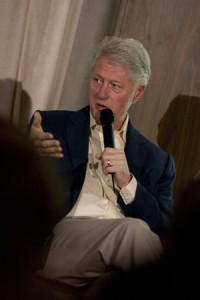Jul 22, 2011 C-Level Event Considerations, Part 1
As the first in what will be a series of posts, I’ll share tips to consider when planning events for a C-level audience. C-level or the C-suite, refers to the 3-letter initials starting with “C” and ending with “O”, such as Chief Executive Officer (CEO), Chief Operations Officer (COO), and Chief Financial Officer (CFO).
Not all audiences are created equal
At Wilsonwest, we begin the design and planning of your meeting or conference by imagining the event through the eyes of your audience. The details and characteristics that a C-Level audience requires differ from the those of an audience of analysts. Understanding your audience, your event stakeholders (hosts, partners) and the desired outcomes are critical. Engage your event stakeholders (especially those in the C-Suite) from the start to ensure the goals are clear and supported.
Keep it personal
Know your audience and maintain a profile of each attendee for internal briefings, content development and audience acquisition. The profile should include career history, potential connectors, peers and influencers, board positions, key challenges ahead, special needs, family information, personal attributes and interests. Consider engaging Boardroom Insiders to provide you with the data if you do not have the internal resources. Create a similar in-depth profile of the hosting C-level Executive(s) with information on hot buttons, speaking style for scriptwriter, dietary preferences, etc. Sometimes, something as simple as
having a diet coke on hand at the right moment will do the trick!
Watch the clock
C-level audiences are highly-scheduled and in demand. Calendar events early! Leverage key relationships with invitations and consider the best format for invites. Personal letters and calls from your hosting CEO are much more powerful than over-
produced paper invites. And don’t forget to establish a relationship with their Executive Assistant!
Be cognizant of and sensitive to their needs and manage requests as efficiently as possible. When choosing an event date, be mindful of international calendars and avoid scheduling events on weekends and other peak calendar times where personal
schedules reign (Summer, wedding/graduation season, holidays, etc.). Limit multi-day events to 3 days maximum, as the C-level audience generally will not spend more than that amount of time out of the office. Evening events should conclude at a reasonable hour. Keep after-dinner conversation and entertainment optional. When hosting an event at a hotel, keep the evening events on property or close by: this audience does not like to be ferried around for long drives to off-property events.
My next post in the series will include some tips on developing the program content and building environments that are conducive
to conversation.


Sorry, the comment form is closed at this time.